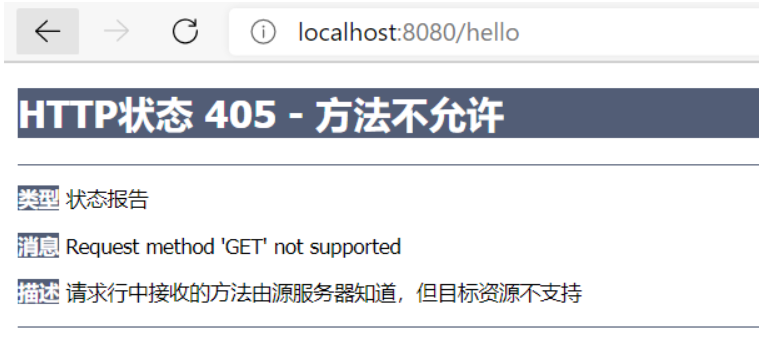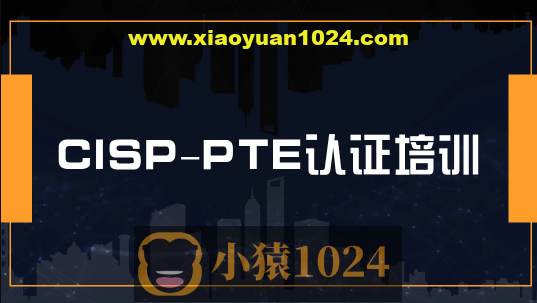Restful
1.REST架构的主要原则
1.1 对网络上所有的资源都有一个资源标志符
1.2 对资源的操作不会改变标识符
1.3 同一资源有多种表现形式(xml、json)、
1.4 所有操作都是无状态的(Stateless)
符合上述REST原则的架构方式称为Restful
2.URI和URL区别
URI:http://example.com/users/
URL:http://example.com/users/{user} (one for each user)
2.1.什么是无状态性
使得客户端和服务器端不必保存对方的详细信息,服务器只需要处理当前的请求,不需了解请求的历史。可以更容易的释放资源,让服务器利用Pool(连接池)技术来提高稳定性和性能。
3.Restful操作
RESTful是一种常见的REST应用,是遵循REST风格的web服务,REST式的web服务是一种ROA(面向资源的架构)。更加安全!!
| http方法 | 资源操作 | 幂等 | 安全 |
|---|---|---|---|
| GET | SELECT | 是 | 是 |
| POST | INSERT | 否 | 否 |
| PUT | UPDATE | 是 | 否 |
| DELETE | DELETE | 是 | 否 |
注:幂等性:对同一REST接口的多次访问,得到的资源状态是相同的。
安全性:对该REST接口访问,不会使服务器端资源的状态发生改变。
3.1接口示例
传统URL请求格式:
http:/127.0.0.1/test/query/2 http:/127.0.0.1/test/query?id=1 GET 根据用户id查询用户数据
http:/127.0.0.1/test/save POST 新增用户
http:/127.0.0.1/test/update POST 修改用户信息
http:/127.0.0.1/test/delete GET/POST 删除用户信息
RESTful请求格式:
http:/127.0.0.1/test/1 GET 根据用户id查询用户数据
http:/127.0.0.1/test POST 新增用户
http:/127.0.0.1/test PUT 修改用户信息
http:/127.0.0.1/test/1 DELETE 删除用户信息
4.Http状态码
4.1一般情况:
200:请求响应成功 200
3xx:请求重定向 重定向:你重新到我给你新位置去;
4xx:找不到资源 404 资源不存在;
5xx:服务器代码错误 500 502:网关错误
4.2具体情况:
HttpStatus = {
//Informational 1xx 信息
'100' : 'Continue', //继续
'101' : 'Switching Protocols', //交换协议
//Successful 2xx 成功
'200' : 'OK', //OK
'201' : 'Created', //创建
'202' : 'Accepted', //已接受
'203' : 'Non-Authoritative Information', //非权威信息
'204' : 'No Content', //成功,但没有内容
'205' : 'Reset Content', //重置内容
'206' : 'Partial Content', //部分内容
//Redirection 3xx 重定向
'300' : 'Multiple Choices', //多种选择
'301' : 'Moved Permanently', //永久移动
'302' : 'Found', //找到
'303' : 'See Other', //参见其他
'304' : 'Not Modified', //未修改
'305' : 'Use Proxy', //使用代理
'306' : 'Unused', //未使用
'307' : 'Temporary Redirect', //暂时重定向
//Client Error 4xx 客户端错误
'400' : 'Bad Request', //错误的请求
'401' : 'Unauthorized', //未经授权
'402' : 'Payment Required', //付费请求
'403' : 'Forbidden', //禁止
'404' : 'Not Found', //没有找到
'405' : 'Method Not Allowed', //方法不允许
'406' : 'Not Acceptable', //不可接受
'407' : 'Proxy Authentication Required', //需要代理身份验证
'408' : 'Request Timeout', //请求超时
'409' : 'Conflict', //指令冲突
'410' : 'Gone', //文档永久地离开了指定的位置
'411' : 'Length Required', //需要Content-Length头请求
'412' : 'Precondition Failed', //前提条件失败
'413' : 'Request Entity Too Large', //请求实体太大
'414' : 'Request-URI Too Long', //请求URI太长
'415' : 'Unsupported Media Type', //不支持的媒体类型
'416' : 'Requested Range Not Satisfiable', //请求的范围不可满足
'417' : 'Expectation Failed', //期望失败
//Server Error 5xx 服务器错误
'500' : 'Internal Server Error', //内部服务器错误
'501' : 'Not Implemented', //未实现
'502' : 'Bad Gateway', //错误的网关
'503' : 'Service Unavailable', //服务不可用
'504' : 'Gateway Timeout', //网关超时
'505' : 'HTTP Version Not Supported' //HTTP版本不支持
};
5.测试
@Controller
public class RestFulController {
//映射访问路径
@RequestMapping("/commit/{p1}/{p2}")
//在SpringMVC中可以使用 @PathVariable,让方法参数的值对应绑定到一个URI变量上
public ModelAndView index(@PathVariable int p1, @PathVariable int p2, ModelAndView mv){
int result = p1 + p2;
//实例化一个ModelAndView对象用于向视图中传值
mv.addObject("msg","结果:" + result);
//返回视图
mv.setViewName("test");
return mv;
}
}

也可以使用method属性指定类型
@RequestMapping(value = "/hello",method = {RequestMethod.POST})
public String index2(Model model){
model.addAttribute("msg", "hello!");
return "test";
}

但浏览器地址栏进行访问是通过GET方式进行的 ,我们定义的是POST方法-所以报错不匹配
改为GET
@RequestMapping(value = "/hello",method = {RequestMethod.GET})
//我们一般采用这种方式:@GetMapping("/hello")
public String index2(Model model){
model.addAttribute("msg", "hello!");
return "test";
}

我们可以看到Method 方式太长,不方便,我们可以用延伸的方法
@GetMapping:扮演的是@RequestMapping(method =RequestMethod.GET) 的快捷方式。
@PostMapping (method =RequestMethod.GET)
@PutMapping (method =RequestMethod.POST)
@DeleteMapping (method =RequestMethod.DELETE)
@PatchMapping (method =RequestMethod.PATCH)
如:
如果是地址栏输入(GET)可以调用 index方法:
@GetMapping("/commit/{p1}/{p2}")
//在SpringMVC中可以使用 @PathVariable,让方法参数的值对应绑定到一个URI变量上
public ModelAndView index(@PathVariable int p1, @PathVariable int p2, ModelAndView mv){
int result = p1 + p2;
//实例化一个ModelAndView对象用于向视图中传值
mv.addObject("msg","结果1:" + result);
//返回视图
mv.setViewName("test");
return mv;
}
如果前端页面form表单 method为POST,则调用index2方法
@PostMapping("/commit/{p1}/{p2}")
//在SpringMVC中可以使用 @PathVariable,让方法参数的值对应绑定到一个URI变量上
public ModelAndView index2(@PathVariable int p1, @PathVariable int p2, ModelAndView mv){
int result = p1 + p2;
//实例化一个ModelAndView对象用于向视图中传值
mv.addObject("msg","结果2:" + result);
//返回视图
mv.setViewName("test");
return mv;
}











